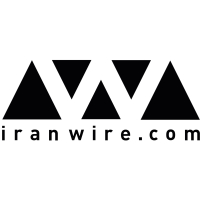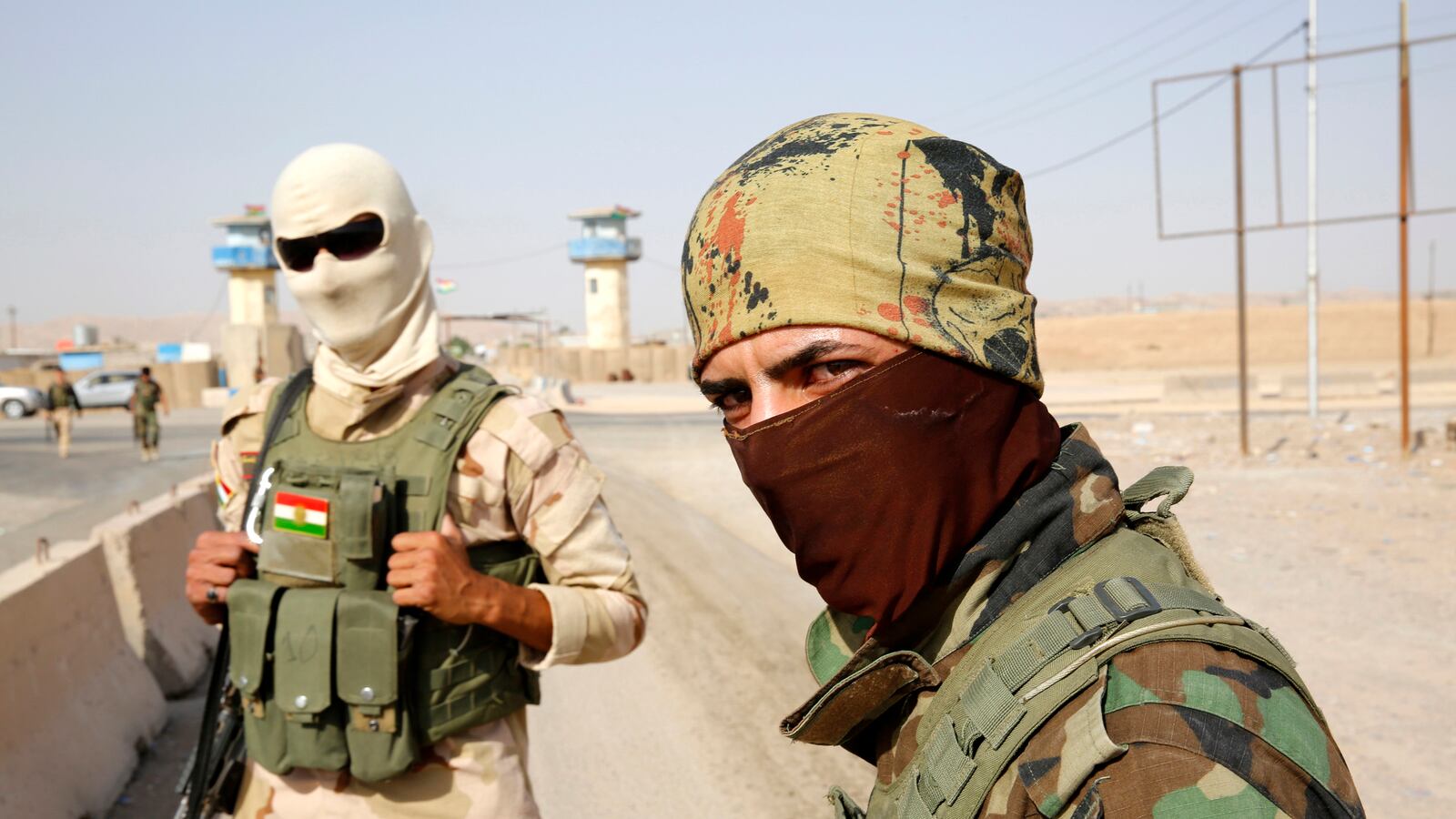By Marjan Namazi, IranWire.
At the end of June, Nechirvan Barzani, the prime minister of Iraqi Kurdistan, visited Tehran along with a high-level Kurdish delegation to meet with Rear Admiral Ali Shamkhani, secretary of Iran’s Supreme National Security Council.
Shamkhani is a moderate military figure and usually appears in public wearing civilian clothes, but when he met Barzani he was dressed in full navy uniform. “I intentionally met with Nechirvan Barzani in uniform so that he would understand that for us the integrity of Iraq is important,” Shamkhani said three days after the meeting.
That a top-ranking Iranian official has resorted to sartorial symbolism reflects just how overwhelmed Iran has been by the twin crises of Iraqi Prime Minister Nouri al-Malaki’s failed leadership and the Kurdish move to hold a referendum on independence. For Iran, an effective Kurdish secession from the Iraqi central government would be deeply alarming, with reverberations far beyond simply Iran’s reach across a fragmented Iraq.
“We have stated that violating the progressive and comprehensive constitution of Iraq and demands to overstep its provisions for a federal system would not benefit anyone,” Hossein Amir-Abdollahian, deputy foreign minister for Middle Eastern and African Affairs, told Al-Alam, Iran’s state Arabic news network.
On July 3, Masoud Barzani, president of the Kurdistan Regional Government, asked the Kurdish parliament to form an independent commission to start organizing a referendum on independence. Less than 24 hours after the news was published, Abdollahian implicitly called Barzani unwise, saying that he was confident that “among Kurdish leaders there are also wise people who would not consent to the breakup of Iraq.”
The daily Jomhouri-e Eslami, run by a managing editor close to the former President Hashemi Rafsanjani, described Masoud Barzani on July 21 as an “emotional individual with secessionist slogans” and warned that “in schemes by people like Barzani, there are ridiculous territorial claims on some neighboring countries such as Iran.”
For almost a century since the end of World War I and the creation of Iraq from parts of the Ottoman Empire, both Iran and Turkey have worried that the creation of an independent Kurdish state in Iraq would encourage their own Kurdish political or paramilitary groups and citizens to join that independent Kurdish entity.
“The territorial disintegration of any of Iran’s neighboring countries increases the danger of secessionists movements within Iran,” said Shireen T. Hunter, a professor of international relations at Georgetown University, in an interview with IranWire. “The success or failure of such movements of course depends on the domestic conditions. If the economy is working and the people are content then such movements will not succeed. If not, however, their chances of success will be enhanced.”
Iran faced such an insurgency in the wake of World War II. Under the protection of Soviet troops who had occupied parts of north-western Iran during the war, a Kurdish Republic was declared in the city of Mahabad in the Iranian Kurdistan. It lasted for 10 months from January 1946 to November of the same year, when Soviet troops left Iran under pressure from the United States and in accordance with the Yalta Agreement. The defense minister of this short-lived republic was Mullah Mustafa Barzani, the Iraqi-born father of Masoud Barzani. The president of the republic, Qazi Muhammad, was hanged along with his brother but Mullah Mustafa escaped to Soviet Union and returned to Iraq in 1958.
“Formation of an independent Kurdistan in Iraq can encourage similar movements in Iran,” says Hunter, “especially since Masoud Barzani dreams of a Greater Kurdistan. He is Mullah Mustafa’s son. But Iran is not the only country that is facing the threat of Kurdish separatism.” Turkish Prime Minister Erdogan “imagines that he can come to an arrangement with Barzani but there is no doubt that after Iran Turkey would be in the same situation. It might not happen immediately but happen it will.”
In the chaos after the Islamic Revolution of 1979 and the start of Iran-Iraq war which lasted for eight years, some Iranian Kurds sought to revive their secessionist movement but were weakened by the central government’s relentless suppression and the assassination of some key Kurdish opposition leaders in Europe.
In recent years Iranian Kurds have seriously tried to participate in Iranian politics and elections but the Islamic Republic continues to discriminate against them socially, politically and economically. Even now that the crisis in Iraq has escalated and Barzani seeks to hold a referendum, Iranian statesmen, generals and religious figures in the government make no promises to improve the lot of the Kurds and ease discriminations.
Instead they have directed their attacks towards Iraqi Kurdish leaders, the United States and Israel. For example Ahmad Khatami, a hardline cleric and a senior member of the Assembly of Experts, reacted to the news of plans for the independence referendum by saying that “this conspiracy must be nipped in the bud because it would become another cancerous tumor like Israel.” And Foreign Ministry spokeswoman Marzieh Afkham called the referendum “a Zionist conspiracy.”
At this moment it is unlikely that Iraqi Kurds will go ahead with declaring independence. Besides Iran and Turkey, the United States has also explicitly opposed such a move.
“I agree that the breakup of Iraq can create problems for Iran especially in the Kurdish region,” a Kurdish affairs analyst in Tehran tells IranWire, “but it should not be presented as a nightmare scenario. Most Iranian Kurds have no interest in secession from Iran or in joining an independent republic. It is partly because of nationalistic feelings but there are logical reasons as well. Even if Kurdistan secedes it would not be a safe and secure country.”
The analyst says that a vulnerable independent Kurdish republic, surrounded by hostile Sunnis or a suspicious Iran, would not appeal to Iranian Kurds, who are accustomed to the relative tranquility and stability of their lives in Iran’s Kurdish region.
“Masoud Barzani knows that his plan would not be realized but he is a good political player,” this analyst believes. “He knows that he can use the current panic of Turkey, Iran, the U.S. and the Iraqi central government and extract concessions that he wants. For example, he might ask Iran to stop supporting the Iraqi Prime Minister Nuri al-Maliki who is despised in Iraqi Kurdistan and allow a more nationalist and secular Shi’a to replace him.”
This might be actually what is happening, albeit slowly. In the past few weeks the Iranian Foreign Ministry has made it known that Iran is not adamant that Nuri al-Maliki should remain in power.
Nevertheless Nader Hashemi, director of the Center for Middle East Studies at the University of Denver tells IranWire that “Iran is deeply worried about developments in Iraq. The first is that it wants the Shi’a political parties to remain in power and dominate the system. Iran’s main fear is that the emergence of a Sunni political force, be it extremist or moderate, would increase the influence of Saudi Arabia at the expense of Iran.”
The second fear, according to Hashemi, is that “Iraqi Kurdistan is too close to the West and to Israel and this can turn into a security challenge for Iran. The Israeli Prime Minister Netanyahu has publicly come out for the independence of Kurdistan. What remains to be seen is how much influence Iran has over Masoud Barzani.” Should the Kurds delay their bid for independence in order to extract more concessions from the central government, Hashemi says, better relations between Tehran and the Kurdish Regional Government might be preserved in the short to medium-term.
Meanwhile there are conflicting reports that in Kubani, a small town in Syrian Kurdistan, Iranian fighters and Iraqi Kurdish Peshmerga have fought ISIS together. Fars News Agency, affiliated with the Revolutionary Guards, has denied these report which were published in newspapers such as the London-based Asharq Al-Awsat.
While it might seem that ISIS’s recent gains in northern Iraq might quell Kurdish leaders’ inclination to move forward with a referendum at present, the horizon may hold such a move yet, and Iran’s anxieties remain firmly in place.
This article originally written by Marjan Namazi appeared on IranWire.





